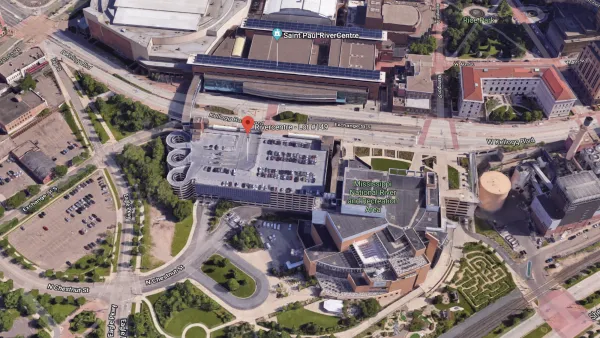Berkeley is the second city in Northern California to approve landmark zoning reforms so far in 2021.

The city of Berkeley, known for many decades as a hot bed of anti-development politics, last night undertook a major step in reforming its zoning code to create incentives for more residential development.
At a hearing that lasted into the evening, the Berkeley City Council approved an ordinance that eliminates parking requirements for residential properties citywide, with a few exceptions on hillside properties.
The City Council voted unanimously to approve the ordinance according to multiple sources in attendance at the hearing last night, including Councilmember Rigel Robinson. The vote marks a significant milestone for the city, which has a reputation for anti-development politics amidst sky-high real estate prices. A recent story about the "conservative" development politics in the city of San Francisco could very well have been written about the Berkeley of the relatively recent past, in addition to the more distant past. That reputation has begun to shift in more recent years, as new leadership has altered the development politics of the City Council. In 2019, the city decided to study zoning for new Missing Middle Housing, and the city was among the first to ban natural gas in new buildings.
An article by Patrick Siegman detailed the Berkeley parking reform ordinance before the City Council's vote. Siegman provides specific details about the ordinance, in addition to explaining the thinking behind parking requirement reform:
Reforms recommended by the Planning Commission would remove minimum parking requirements for all residential land uses, with the exception of some lots located on roadways less than 26 feet wide in hillside areas. The Planning Commission also recommends adopting maximum parking limits and instituting transportation demand management requirements for residential land uses.
The city of Berkeley's decision to eliminate parking requirements for residential properties follows just days after the city of Sacramento, located 90 miles to the northeast of Berkeley, approved landmark parking reforms while approving citywide zoning changes.
FULL STORY: Should Blind People in Berkeley Be Required to Buy Parking Spaces?

Analysis: Cybertruck Fatality Rate Far Exceeds That of Ford Pinto
The Tesla Cybertruck was recalled seven times last year.

National Parks Layoffs Will Cause Communities to Lose Billions
Thousands of essential park workers were laid off this week, just before the busy spring break season.

Retro-silient?: America’s First “Eco-burb,” The Woodlands Turns 50
A master-planned community north of Houston offers lessons on green infrastructure and resilient design, but falls short of its founder’s lofty affordability and walkability goals.

Test News Post 1
This is a summary

Analysis: Cybertruck Fatality Rate Far Exceeds That of Ford Pinto
The Tesla Cybertruck was recalled seven times last year.

Test News Headline 46
Test for the image on the front page.
Urban Design for Planners 1: Software Tools
This six-course series explores essential urban design concepts using open source software and equips planners with the tools they need to participate fully in the urban design process.
Planning for Universal Design
Learn the tools for implementing Universal Design in planning regulations.
EMC Planning Group, Inc.
Planetizen
Planetizen
Mpact (formerly Rail~Volution)
Great Falls Development Authority, Inc.
HUDs Office of Policy Development and Research
NYU Wagner Graduate School of Public Service




























